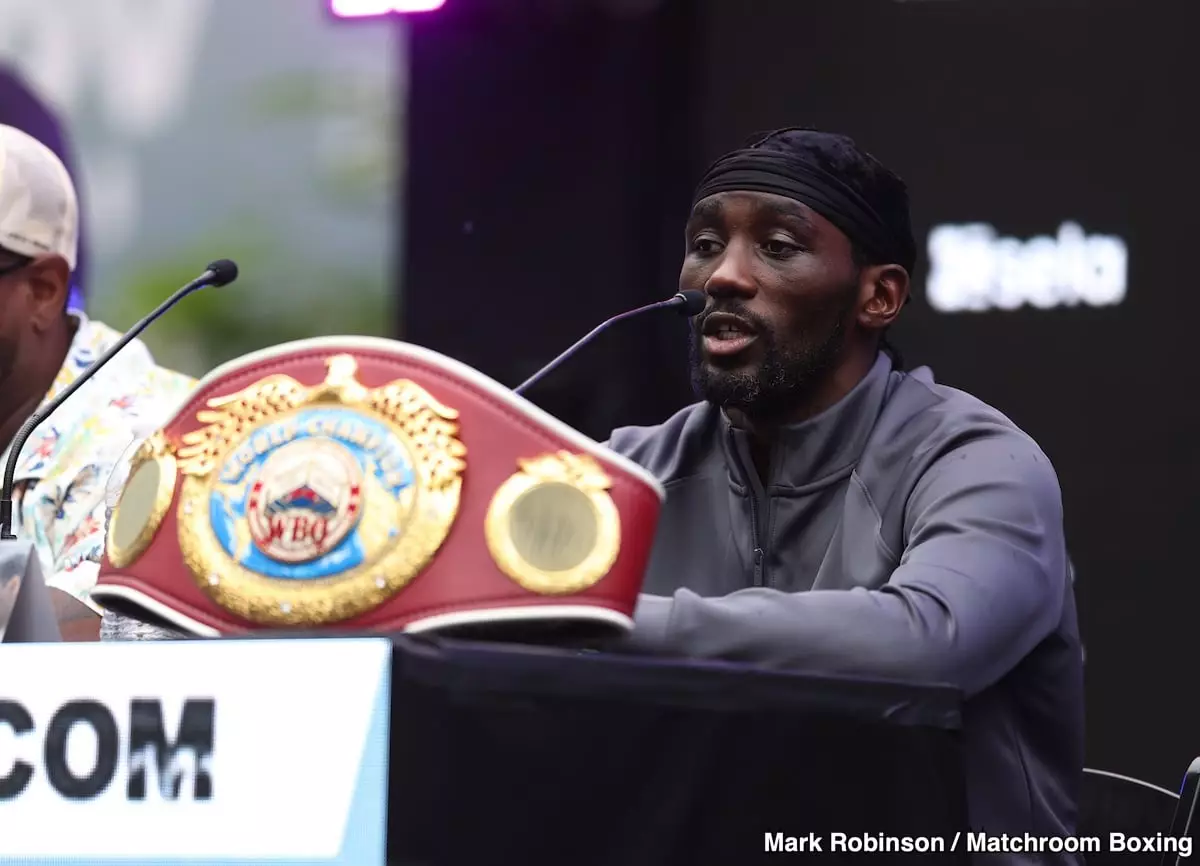When it comes to the world of boxing, few topics ignite as much debate as the legacies of its champions. One recent instance is the heated exchange between Terence Crawford and Canelo Alvarez, with Alvarez challenging Crawford’s accomplishments. This confrontation not only brings to light the rivalry between two prominent figures in boxing but also raises pertinent questions regarding what it truly means to have a stellar boxing career. As fans and analysts dive into the intricacies of each fighter’s journey, we owe it to ourselves to assess the authenticity of Crawford’s standing in the sport, especially in light of Alvarez’s critique.
Terence Crawford, an undefeated champion with 41 wins and 31 knockouts to his name, has been vocal about his prowess in the ring. Recently, he directly confronted Canelo Alvarez, taking offense at Alvarez’s assertion that Crawford has only “beaten one good fighter.” This contention revolves primarily around Crawford’s notable victory over Errol Spence. Yet, Crawford’s response did little to mitigate the shadows cast by Alvarez’s criticism. Instead, he indicated that he relishes in making opponents look inferior, a statement that, while indicative of confidence, invites scrutiny into the authenticity of his victories. The question remains: is this confidence rooted in genuine accomplishment or merely an illusion crafted by selective matchmaking?
In evaluating a fighter’s legacy, the quality of their opponents plays a crucial role. Critics argue that Crawford’s record is marred by a lack of competitive, high-stakes bouts against elite-level opponents. Aside from Spence—who, it’s worth noting, had his fair share of challenges leading up to their fight—Crawford’s resume appears to lack significant names capable of elevating his status in boxing history. For a fighter whose talent is lauded, it is bewildering how many opportunities to face elite fighters have been sidestepped. This absence is not merely a statistical oversight; it opens up a larger dialogue about the dynamics of modern boxing promotions that prioritize record preservation over meaningful competition.
Crawford’s situation reflects a broader trend within the sport, where promoters often manipulate matchups to protect their investments. These strategic decisions allow fighters like Crawford to accumulate records filled with victories over B-level opponents, creating an artificially polished image. This manipulation, while rewarding in the short term, raises questions about the long-term authenticity of a fighter’s legacy. In an era where accolades are often misguidedly equated with merit, it is essential for fighters to engage in bouts that can endure the test of critical analysis from knowledgeable fans and analysts alike.
Crawford’s discord with Canelo brings to the fore one of the most critical aspects of achieving not just notoriety, but genuine respect in boxing: the willingness to take on formidable challengers. If Crawford genuinely desires to cement his status as one of the best in boxing history, he must pursue a broader range of rivals. This could involve stepping into the ring against established contenders in weight classes higher than his current domain or challenging promising upstarts who have been vocal about wanting to face him. More specifically, opportunities at 168 pounds—especially against champions such as David Benavidez or the winner of the Morrell showdown—could enhance Crawford’s legacy tremendously. Instead, the reluctance to engage with these potential matchups only strengthens the argument that he has navigated his career through strategic avoidance rather than embracing the art of competition.
The dialogue between Terence Crawford and Canelo Alvarez is not merely about wounded pride but serves as a critical reflection on what it means to be celebrated in a sport that thrives on valor and authenticity. While Crawford may have the accolades to claim a degree of legitimacy, his legacy remains intertwined with choices that could have propelled him into elite status. To avoid the fate of being seen as merely a “one-win wonder,” Crawford needs to take risks that reflect a commitment to his craft and legacy. Only through bold matchmaking will he truly shine in the annals of boxing history, transforming criticism into a narrative of undeniable greatness.


Leave a Reply